Title: TPAN
Compiled by: Deep Tide TechFlow
Introduction
Recently, the field of SocialFi has seen a new revolution, combining traditional fantasy sports models with social media influence to create a brand new gameplay. Representing this innovative trend, Fantasy.top and Perl not only redefine the way users interact with content creators, but also provide new ideas for the monetization of social platforms. This article will delve into the working mechanisms, innovations, and potential impacts of these two platforms on the future of the social finance field.
Main Text
Ever since I reported on friend.tech six months ago, I have been patiently waiting for a SocialFi product that could excite me as much as it did back then.

Now, it seems that day has finally arrived, as a new category has brought about changes to the established "fantasy" mode commonly seen in the sports world.
Fantasy
I came across Fantasy last week when the platform went live on the Blast testnet. Watching their announcement video, it was really hilarious:
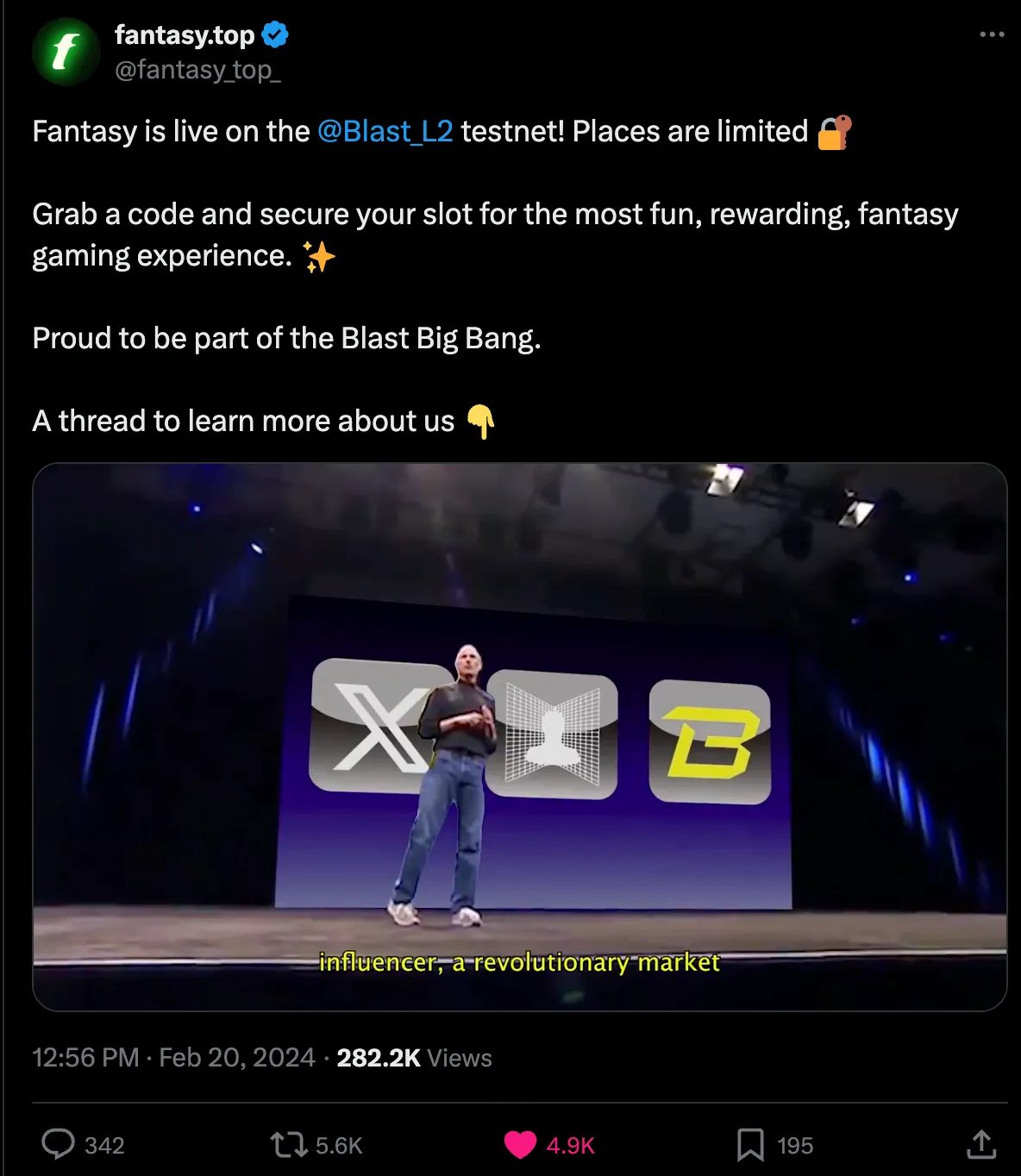
After registering, as soon as I saw the following, I immediately understood the intention behind Fantasy:
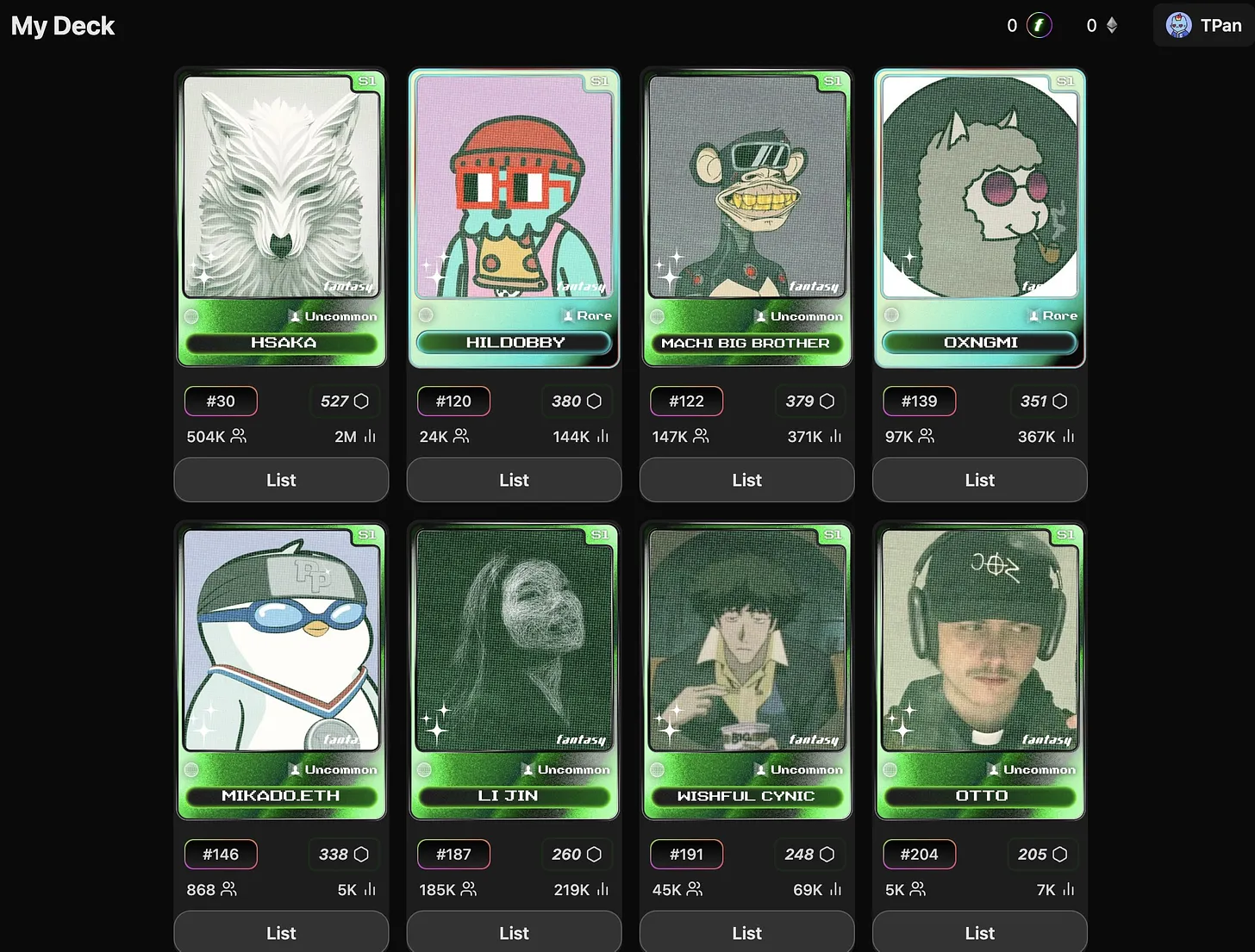
Essentially, Fantasy is a combination of fantasy sports and Twitter influencers, starting with Crypto Twitter.
Editor's note: Fantasy sports refers to online games that allow participants to form virtual teams composed of real athletes. For example, the popular football management game FM.
How does it work?
- Create your fantasy lineup by collecting influencer cards and set lineups for weekly matches
- There is a market where you can buy and sell influencer cards to improve your lineup
- Participants can earn rewards such as BLAST, ETH, FAN points, and influencer packs
That's all there is to it. For anyone who has played fantasy sports before (player statistics, creating the optimal lineup, waiver wire, etc.), this is particularly easy to understand.
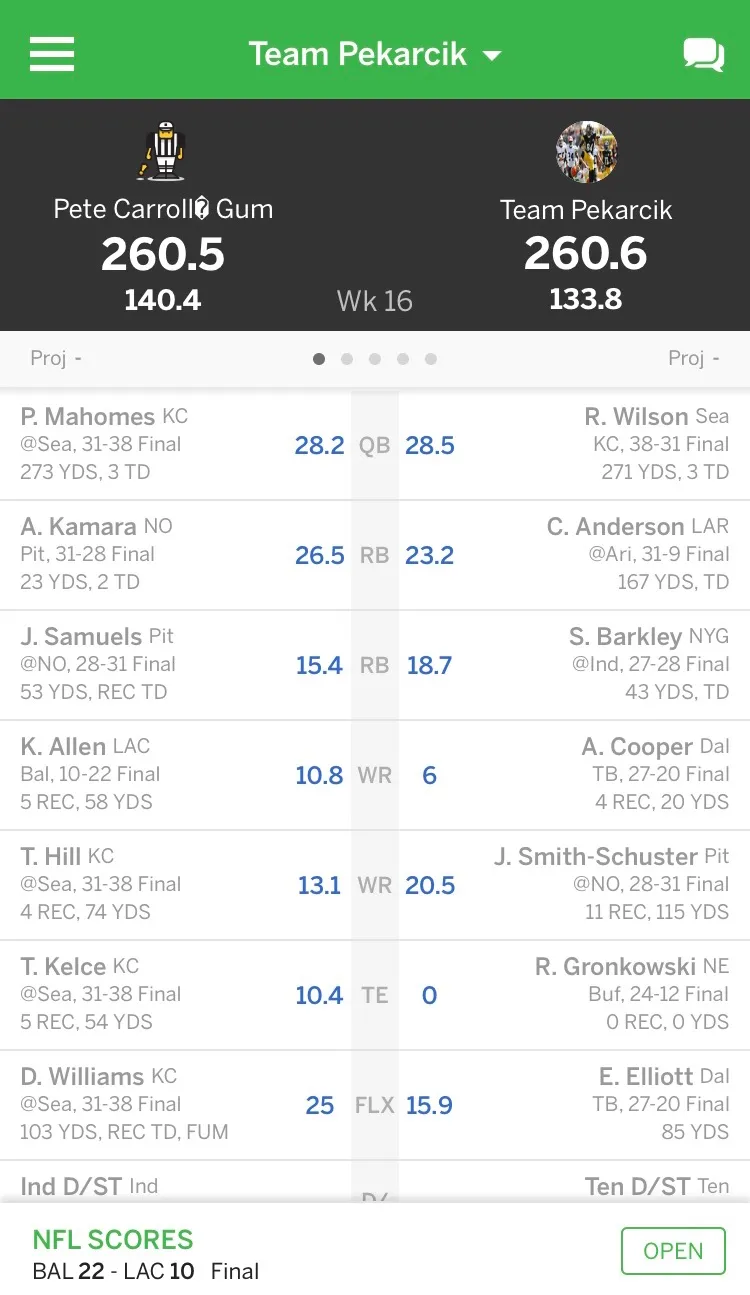
In terms of SocialFi, Fantasy provides clear incentives for players through the market and match rewards. But what about influencers (or "heroes" as Fantasy calls them)?
- Passively earn 1.5% of ETH from the trading volume of their cards. This is additional income beyond the 4% native yield earned on Blast L2
- Receive additional FAN points, which can unlock additional benefits and claims
- Regularly mint your cards for free, which can be gifted to your community or supporters
Imagine if professional athletes were rewarded based on their performance and frequency of being included in the starting lineup. This may be unrealistic for professional athletes, but it's not far-fetched for influencers on emerging platforms like Fantasy.
What do the heroes think of Fantasy? At least some of them find it very interesting.
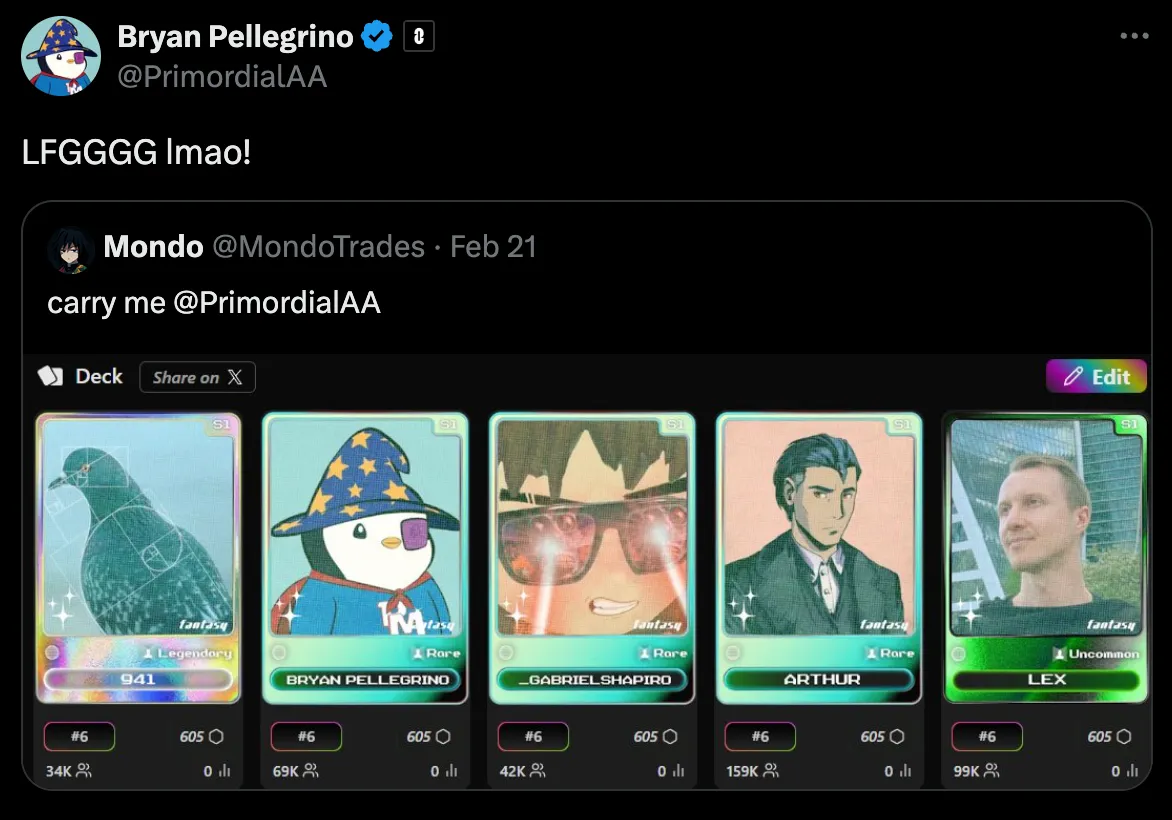
What else is interesting about Fantasy?
Fantasy is both a TCG and a fantasy sports game.
While I compared Fantasy to fantasy sports (an overseas online game), the product has a strong trading card game (TCG) aspect, which is how the team describes itself.
Fantasy is a SocialFi trading card game (TCG) where players can use trading cards of crypto Twitter influencers to play online games, thus monetizing their social capital and research expertise.
Hero cards have different rarities (common, rare, epic, legendary) and seasons (all cards are currently S1). Rarity affects the circulation of hero cards, while the role of seasons is not yet clear (perhaps it is for future point rewards to encourage more trading volume?).
Hero Ratings
Each hero has a rating that determines their performance in matches. This is a comprehensive rating that includes the following factors (and possibly more):
- Hero's ranking in terms of views (compared to others)
- Hero's influence ranking (compared to other heroes)
- Total views of the hero
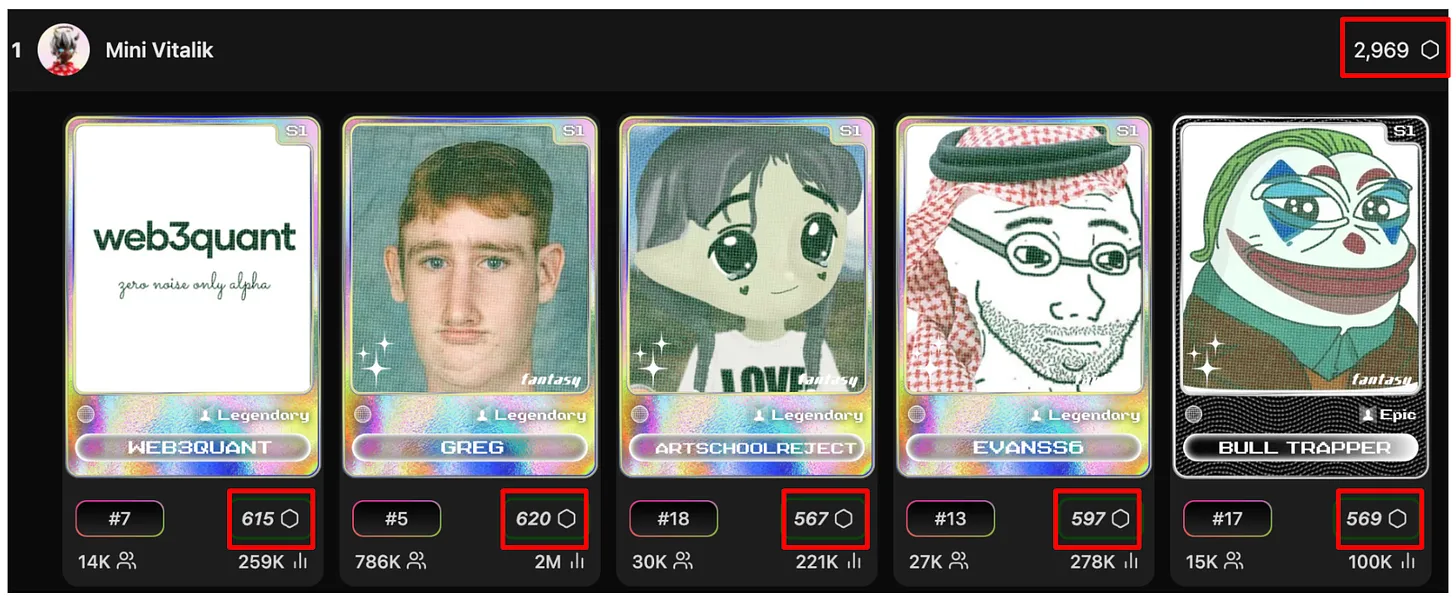
Naturally, this makes lineup decisions much more complex than "I'll just pick the influencer with the most followers." Serious players will study these metrics to create an optimal lineup and increase their chances of winning.
If Fantasy becomes popular enough or the prizes are enticing enough, it will be very interesting to observe whether players use subtle strategies to improve their hero statistics, and how Fantasy responds to these strategies.
As an extreme example, what if a player hacks into an influencer's account and posts some absurd but virally spread content, causing their hero score to skyrocket?
Optimizing Lineups
The behavior of users optimizing lineups is familiar, but the way optimization works is different.
There are no fixed match dates; influential individuals post whenever they want. If they don't post when the Fantasy event goes live, they are essentially "injured."
On the other hand, some influencers may be "injured" (not posting) for several weeks, and then suddenly become active again, like Hsaka. Unlike in sports, there are no injury reports. Sometimes, influencers just want to post again, or there is some kind of catalyst.
In another extreme scenario, what if you "bribe" an influential person to post or post content that is more likely to spread like a virus? Very different assumptions, which may not necessarily violate the rules. Or at least, they are harder to detect.
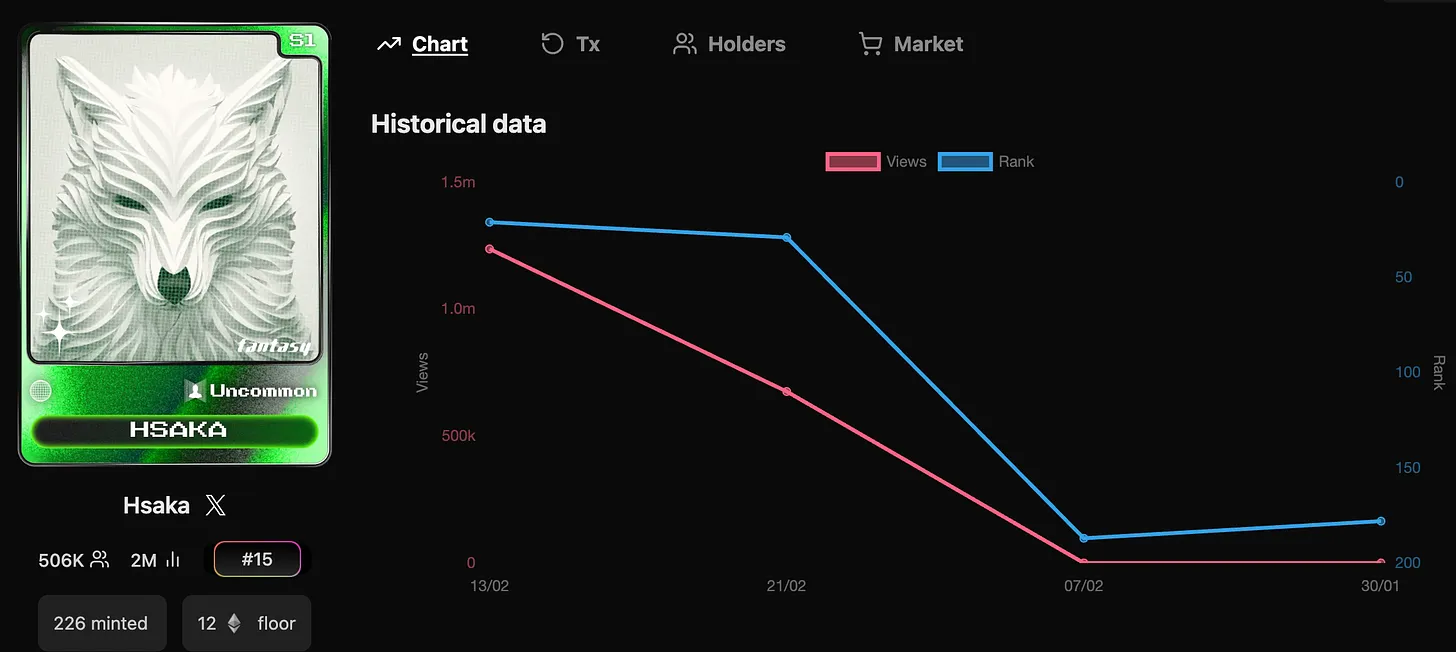
Adjusting Creator Incentive Mechanisms
This is where platforms like Fantasy may have more staying power, while friend.tech struggles to retain users over time.
The magic of platforms like Fantasy (and fantasy sports in general) is that influencers/players don't need to do anything extra. In contrast, friend.tech requires creators to regularly log in to different platforms and create exclusive content for their key holders, or else face selling off.
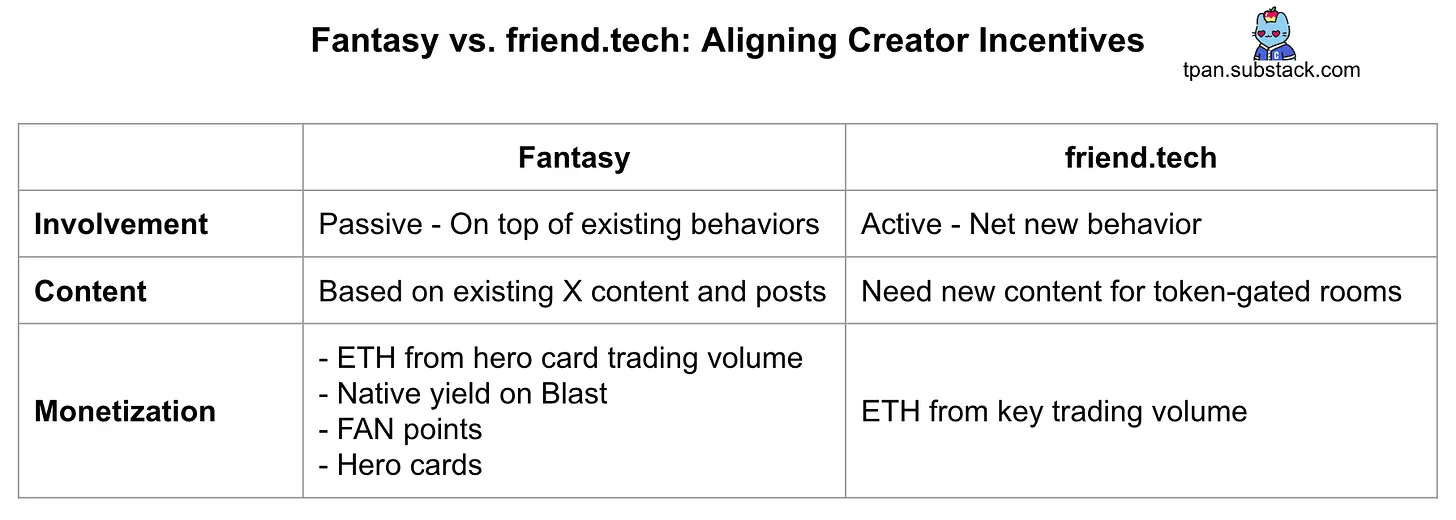
For someone like me, friend.tech is a new SocialFi narrative, which is interesting, but after posting regularly for 5 months, I eventually became inactive.
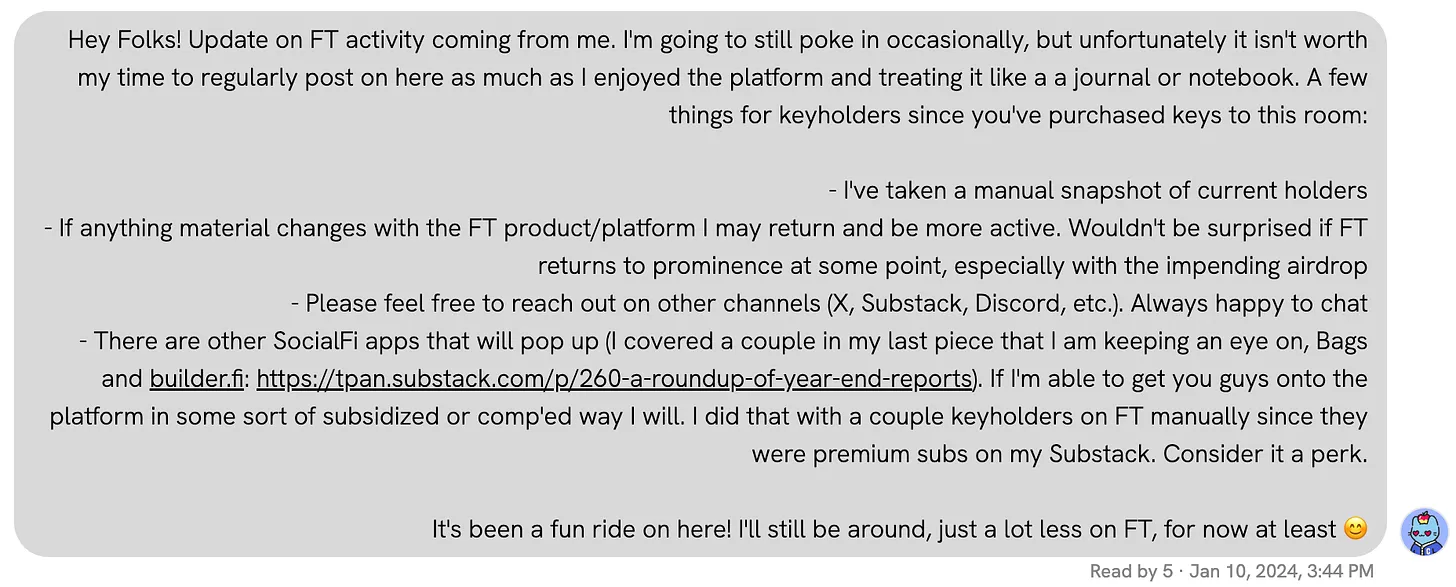
As Fantasy inevitably becomes more popular, it will be interesting to observe how the platform encourages users to continue playing while maintaining a neutral rating method.
Despite these challenges, why do I believe that Fantasy will "inevitably grow"? They are one of the 47 winners of the Big Bang competition, receiving marketing support and a large airdrop allocation.
Furthermore, from last Friday to yesterday, 4,491 new players (connected X accounts + new wallets) joined the testnet version of Fantasy.
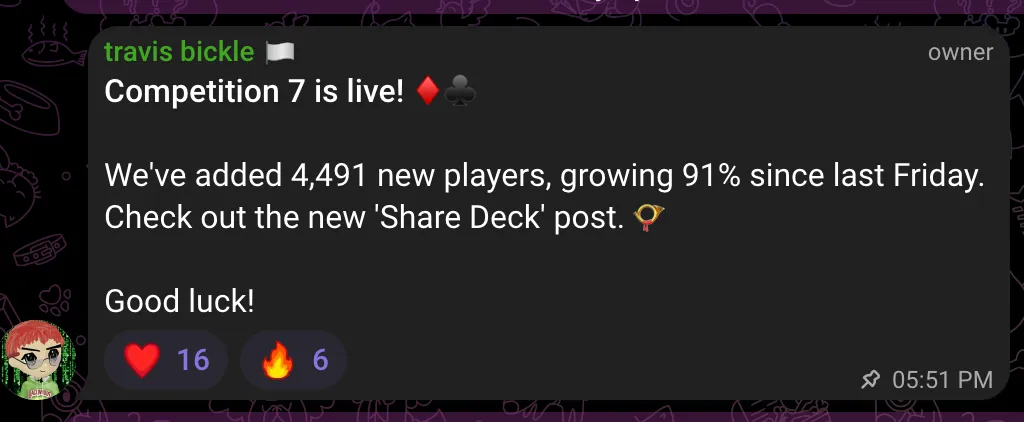
Invitations are currently closed, so if you want to check for invitations, stay alert for when they reopen.
Perl
Fantasy is not the only product exploring the SocialFi genre. Perl is a SocialFi platform built on top of Farcaster, allowing players to bet on users and their social engagement. The mechanism of Perl is even simpler than Fantasy.
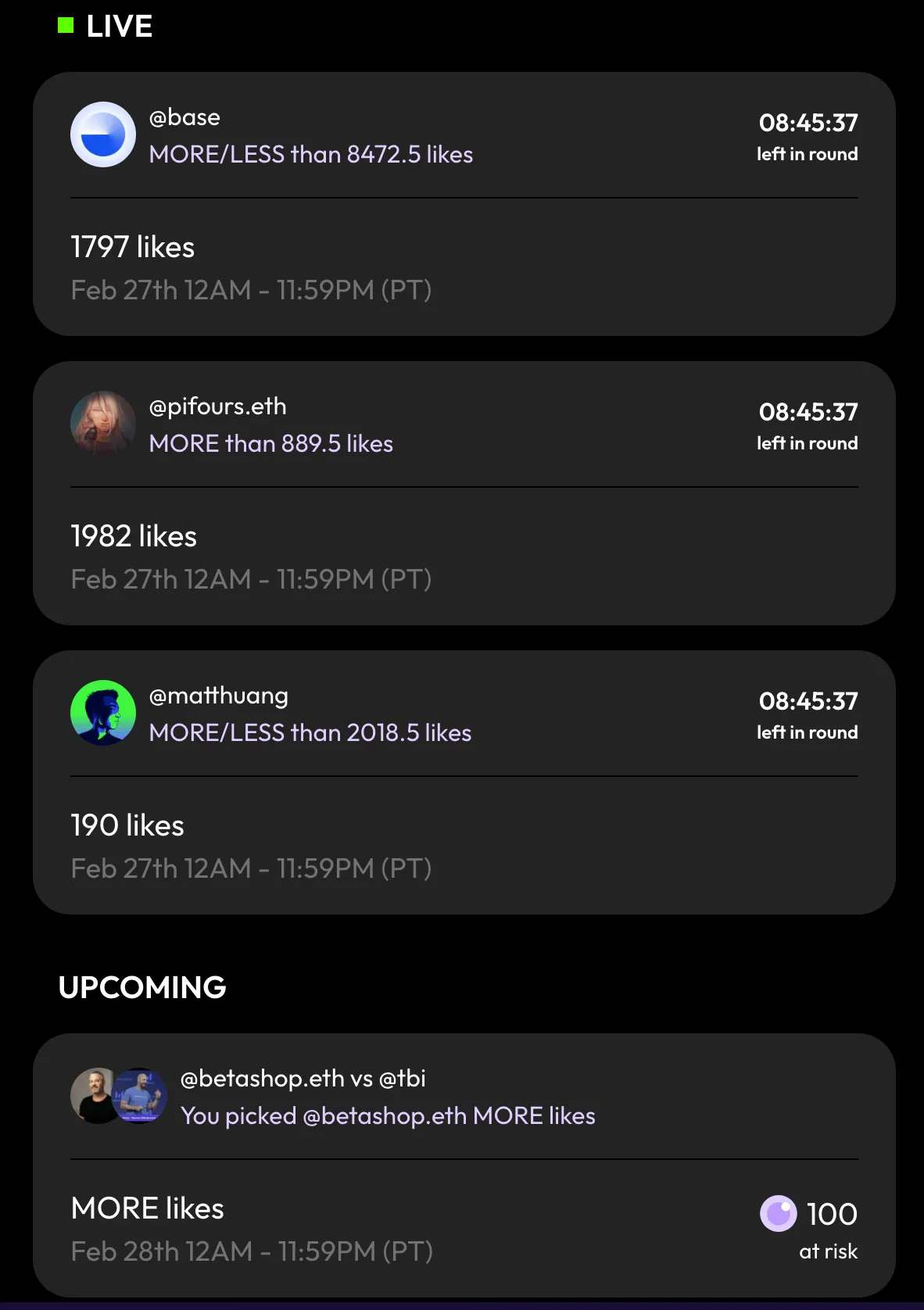
How does Perl work?
- Perl is a free skill-based prediction game
- There are two game modes: MORE/LESS and VERSUS (e.g., will X or Y get more likes?)
- $PERL is the in-game currency for betting
- Perl may offer a decentralized, on-chain version of tokens in the future (i.e., there may be airdrops)
Farcaster Frames functionality allows making choices directly on the Farcaster client, making it easy to attract new users or retain existing user engagement.
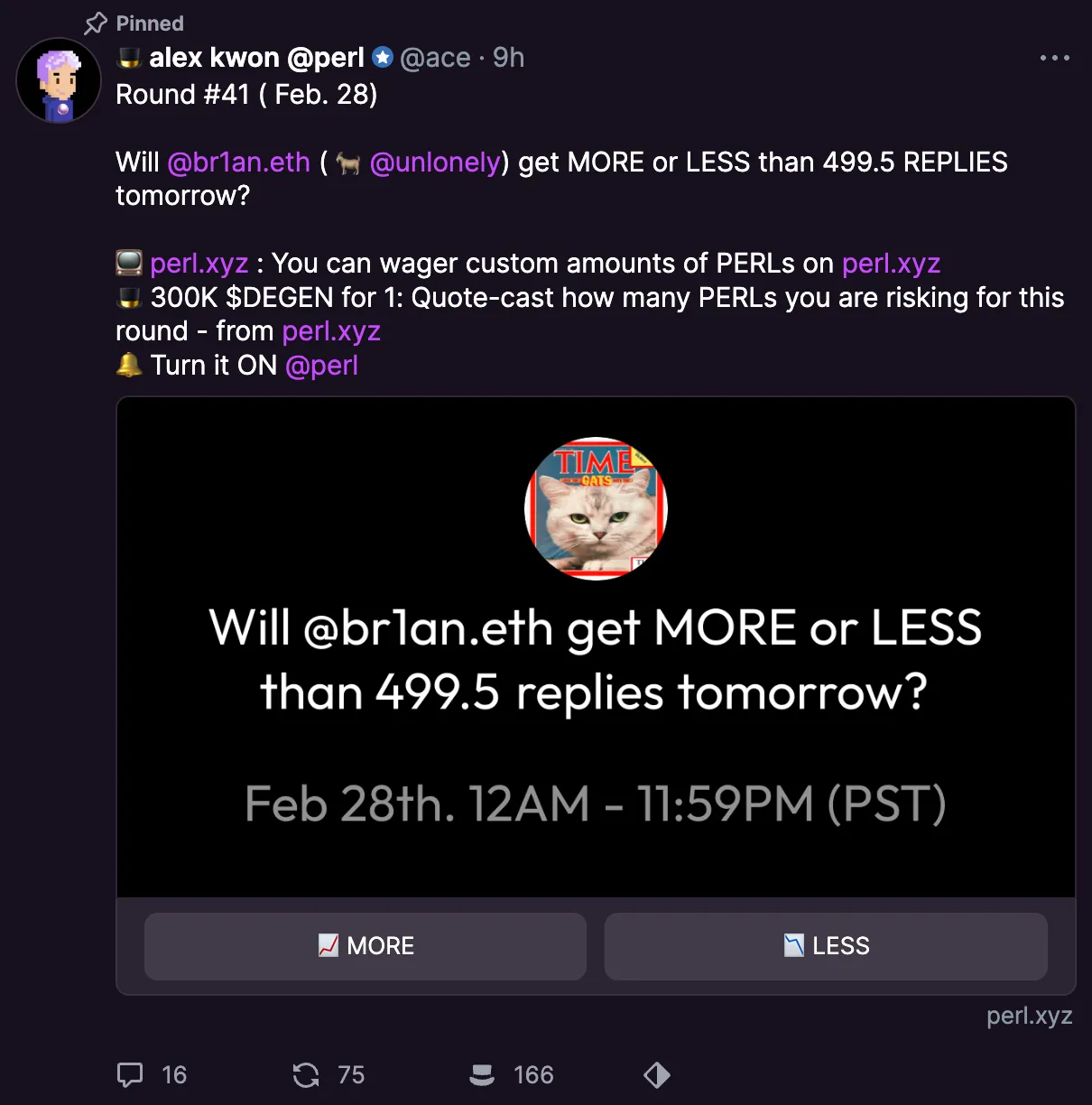
Perl reminds me of PrizePicks, a daily fantasy app with a simple MORE/LESS mechanism.
How will SocialFi develop next?
I have no idea. (I really love asking these brainy questions and then disappointing you with a stupid answer, sorry)
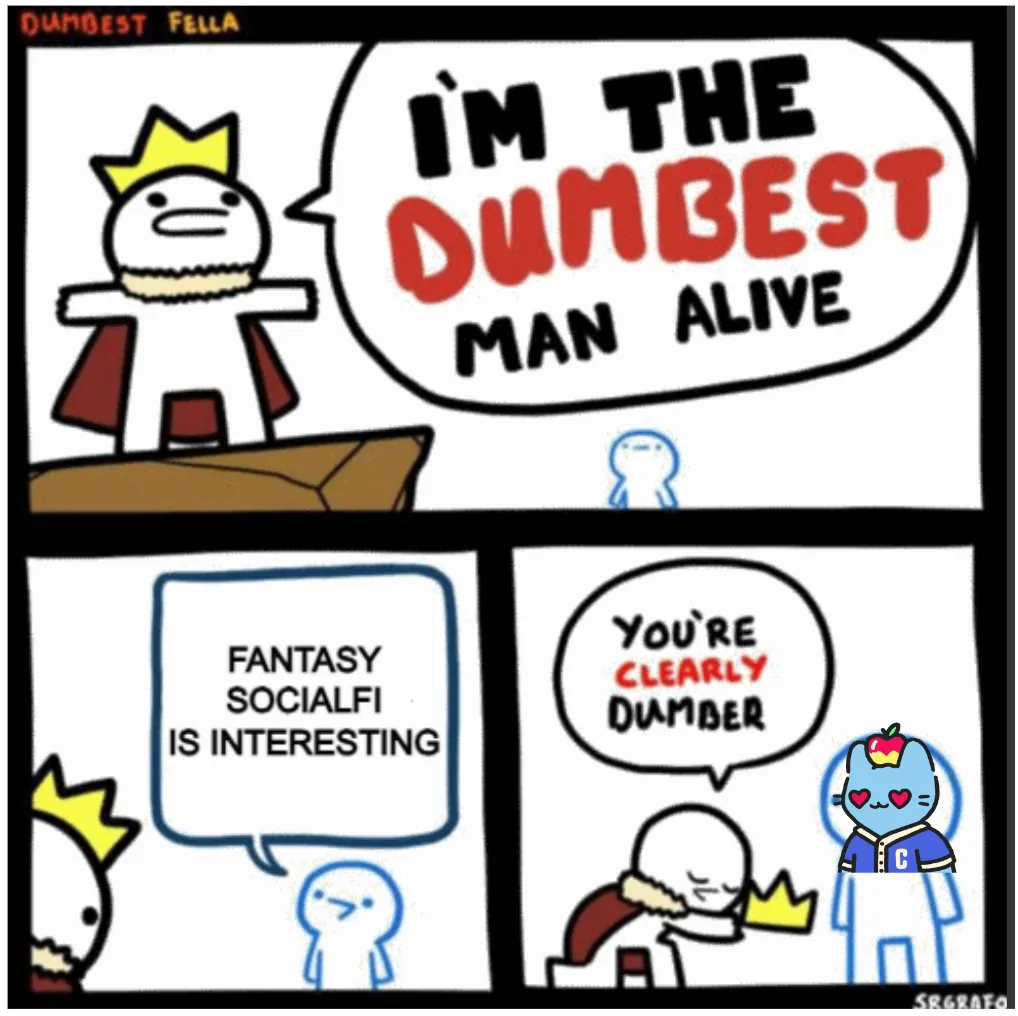
However, the right incentive measures, easy-to-understand mechanisms, and unique features like Farcaster Frames have brought new vitality to this type of SocialFi that did not exist before. These platforms are built on top of social platforms, rather than creating a new social network. This is similar to fantasy sports because it is based on sports, not sports itself (although some people take it seriously, haha).
And it's not just me who thinks so, venture capitalists are also paying attention to this field. At the very least, it's a good thought exercise challenging the traditional notion of "fantasy sports."
As for friend.tech, although they are in a tough spot, they have not exited the market. They are about to do an airdrop and have been quietly building v2.
免责声明:本文章仅代表作者个人观点,不代表本平台的立场和观点。本文章仅供信息分享,不构成对任何人的任何投资建议。用户与作者之间的任何争议,与本平台无关。如网页中刊载的文章或图片涉及侵权,请提供相关的权利证明和身份证明发送邮件到support@aicoin.com,本平台相关工作人员将会进行核查。




